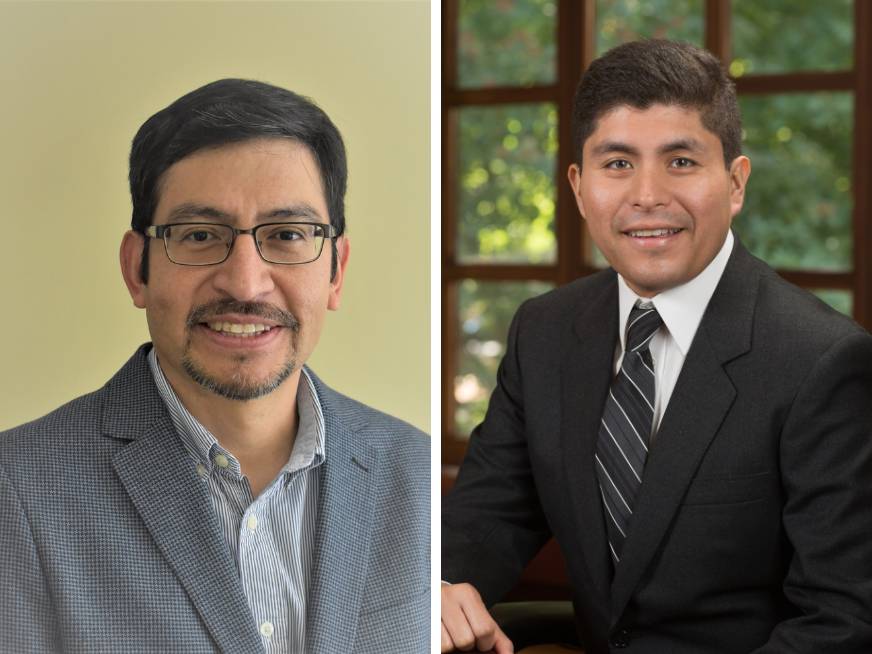The Origin and Impact of the VCU Migration Studies Lab
April 24, 2025

How did the Migration Studies Lab come to fruition? What was the reason behind putting this together?
Espinoza: In 2016, the college invited proposals for great ideas. Together with another faculty member, McKenna Brown, in the School of World Studies, we thought that given that migration is such an important topic in public discussions and also in scholarship, it was a idea to bring together the expertise that already existed at VCU and to propose the hiring of additional faculty who focus on topics related to migration. The college accepted our proposal and allowed us to have a cohort hire at the time, which led us to hire four additional faculty. We were fortunate that over time, other faculty were hired separately, and they eventually became part of the migration studies initiative. In 2022, the director of the Humanities Research Center, Cristina Stanchiu, suggested that we become a lab of the Humanities Research Center, so we decided to do that. We applied to become a lab, and we achieved that, and we have been working together since.
The current initiatives of the Migration Studies Lab are listed on the website. How are these initiatives being enacted, and what do you see as the end goal of the lab?
Morales: As more faculty join, and more research that gets done, the workload grows, rather than ends, so it's much more about providing a home or framework. The idea here is, faculty who often work by themselves could have a forum to do research, both a place to think and a place to talk to each other, but also a place to create new research in the lab itself. That's sort of the goal, to provide a structure for all of these different faculty and graduate collaborations that started and continue with the lab. And since the [LatinX Scholarship] symposium in late March, there is hope for gathering faculty from outside of VCU together.
You recently had a symposium highlighting the Migration Studies Lab. What are your expected outcomes from this event?
Morales: The reason we did the symposium is that we applied for the “Before Collaboration Grant.” The entire purpose of the grant is to get faculty from different universities to talk to each other about common goals and projects that they're working on. We invited faculty from five Virginia institutions, plus three in North Carolina. We learned that there are a lot more people who work on this than we thought at the beginning of the process. We also brought in a lot more organizations, such as Sacred Heart, Sin Barreras from Charlottesville, and organizations in the Shenandoah Valley that were at the symposium. We are hoping to collaborate with them in the future.
Espinoza: I think it's very important for scholarly work to have interlocutors. That's what we try to foster within the classroom and outside of the classroom as well. In terms of teaching, for instance, we have put together a proposal for a migration studies minor, which is currently being considered. In terms of research right now, we have at least three research projects going on.
Our projects include the Latino Virginia Project, which is focused on oral histories and qualitative interviews, the integration of immigrants in Virginia, and Photo Voice methodology within a specific immigrant community south of Richmond. In terms of community engagement, the scholar symposium allows us to meet other people who serve the community, and other immigrant activities within Virginia, as part of the event. We were discussing with Christina [Stanchiu], the director of the Humanities Research Center, that the lab is growing. It's becoming more institutional in a certain way, so that's really gratifying.
How can students of all levels get involved with the lab?
Morales: We have research assistants that we hire to go into the lab, and they're usually advanced undergraduates. This year, we are going to have our first intern. Usually, every year we have two undergraduates that we hire as part of the project for that year, so we have those two jobs, as well as the internship. We’re hoping to expand to more students.
Espinoza: I would like to add that the history department faculty is definitely a key piece of the Migration Studies Lab. The members include me, Professor Daniel Morales, Professor Gomez, and Professor Hafez. We are always looking for opportunities to bring in more faculty who work on topics related to immigration or migration in any part of the world. In addition to that, as Professor Morales mentioned, this past year, we have had two students who were funded by the Undergraduate Research Office. Then we had one student from the Pathways Program, which is supported by the Mellon Foundation, and what the Pathways program does is it gives students who have transferred from the community college system to VCU the opportunity to have hands-on experience in research. We have been really fortunate to have these students.
In fact, Professor Morales asked them to present about the work they have been doing in the Latino Virginia project, and it was one of the high notes of the event. All of the attendants at the event were very impressed by the presentation of the students, how articulate and clear they were about what they had learned from the experience of participating in the Latino Regina project, but also it had impacted them in a personal way, which I found very, very touching.
Final thoughts?
Morales: We want people to be interested in public history and in community-engaged research projects like this one, and to let them know that if you're interested, we have spots available for research assistance and internships.
Espinoza: We already have connections with the community here and community activists and organizations that serve the community, so we can also facilitate those connections.